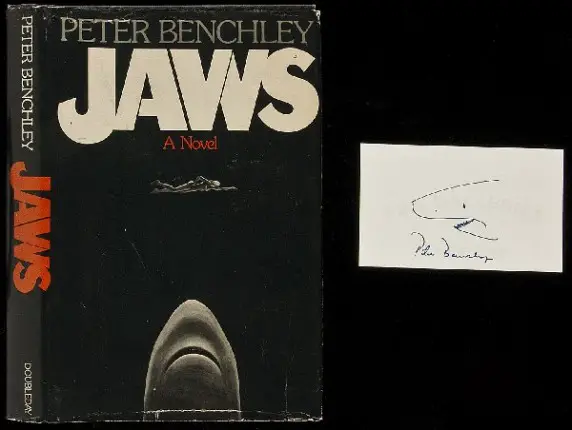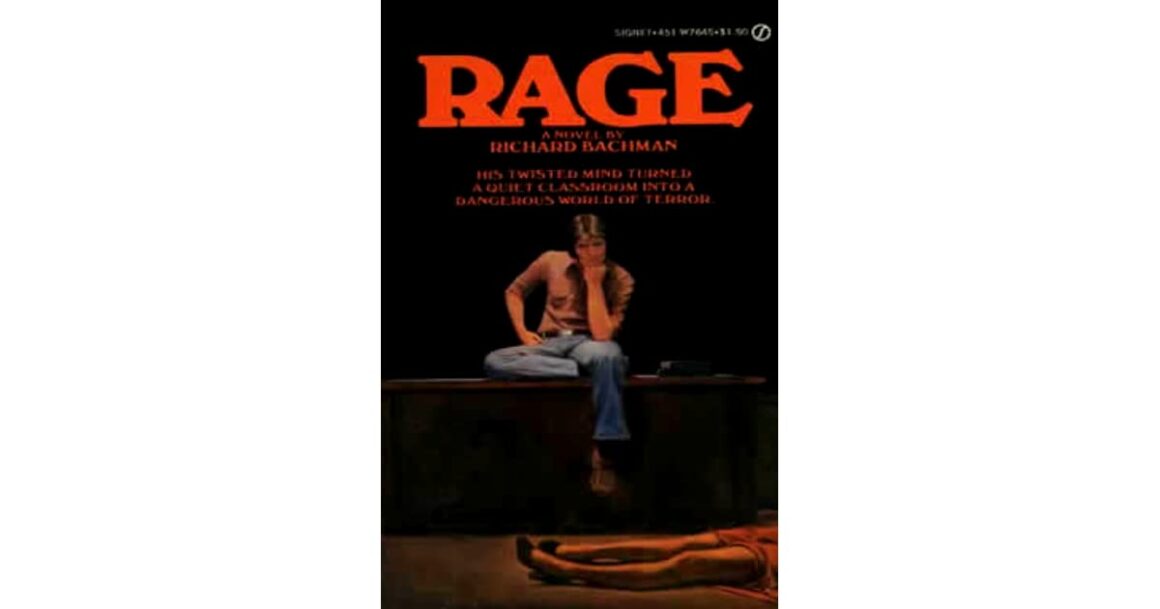There are celebrated authors who hated the movie adaptations of their own books, but there are also authors who hated their own books. Sci-fi writer Octavia Butler is not too fond of her 1978 novel, Survivor. Survivor is one of Butler’s only titles to remain out of print due to it relying too heavily on some of the genre’s worst clichés. In her words, the book was too much like the “really offensive garbage” that dominated science fiction when she was young.
Palm Sunday is a collection of essays by Kurt Vonnegut that he also graded. All of his work received a passing grade (including Slaughterhouse-Five receiving an A+), but Happy Birthday, Wanda June, and Slapstick earned a D grade.
Every cinephile knows about the 1975 movie, Jaws, which was directed by Stephen Spielberg and struck a wave of galeophobia (the extreme fear of sharks) in viewers. Prior to the movie adaptation, there was Peter Benchley‘s 1974 classic suspense novel, Jaws, which was about a great white shark preying upon a small resort town. When Benchley was 27, he quit his job writing for President Johnson to write about the killer shark.

Even though the novel sold over 10 million copies and he became a millionaire, he wished he never wrote Jaws. In 2000, Benchley told the Animal Attack Files, “What I now know, which wasn’t known when I wrote Jaws, is that there is no such thing as a rogue shark which develops a taste for human flesh.”
What Did Bret Easton Ellis Think About the Movie Adaptation of His Book?
Bret Easton Ellis is best known for the 1991 cult novel, American Psycho, about Patrick Bateman, a narcissistic Wall Street serial killer. In the United States, the American Library Association named American Psycho the 53rd most banned and challenged book from 1990–1999.
During an interview with Film School Rejects, Ellis said, “I also don’t think really works as a film. The movie is fine, but I think that book is unadaptable because it’s about consciousness, and you can’t really shoot that sensibility…” The irony is that he wrote a script for the American Psycho parody/homage commercial for Kanye West’s Yeezus. While an author may not be fond of their book, an author typically cannot be fond of the movie adaptation.
A Good Reason to Disown a Book
You may ask yourself, “Who is Richard Bachman,” but if you’re a horror buff, you know by now that Stephen King (the master of modern horror) first published 1977’s Rage under that pseudonym. Rage is about Charlie Decker, a psychologically troubled senior at Placerville High School, who brings a gun to school, kills faculty members, and holds his Algebra class hostage. What can go wrong from here? Rage was found owned by various school shooters from 1988 to 1997, including the ’97 Heath High School shooting in which a student killed three classmates.

King wrote the novel Rage while he was still attending high school in 1965, then published it a decade later. Since King made an attempt to have the novel removed from print, it is one of the most sought-after out-of-print books. If teenagers can be inspired to commit abominable acts due to Rage, what about King’s other books, like The Shining, It, Carrie, Misery, Pet Sematary, and The Green Mile? For others, maybe the novel is an accelerant affecting them with troubled backgrounds and psychological problems.
In 2013, King wrote a non-fiction essay called Guns, revealing that Rage is not considered great literature because of how young he was when writing it, and “The book told unpleasant truths, and anyone who doesn’t feel a qualm of regret at throwing a blanket over the truth is an a[–]hole with no conscience.”
When a Book Overshadows the Author’s Other Accomplishments
It can be challenging for an author to accept that bookworms prefer their masterpiece when their other accomplishments are underappreciated. A. A. Milne created the original Winnie-the-Pooh books that we all love. The author of Winnie-the-Pooh resented the children’s series for overshadowing his other works, which included three novels, 18 plays, and four screenplays. Wilne’s son, Christopher, inspired the character of Christopher Robin, but there is speculation that Christopher disliked the fame surrounding his fictional persona.
A common myth is that Anthony Burgess hated Stanley Kubrick’s 1971 film, A Clockwork Orange. He thought the film was a masterpiece but actually resented having to defend the film (which is not his own work) on television and in print. In Burgess’s biography of novelist D.H. Lawrence, he describes A Clockwork Orange as “a novel I am prepared to repudiate,” being frustrated that his reputation is focused solely on that book.
Back in 2020, when love poems written by Burgess to each of his two wives were discovered, a verse can be found where he dismissed A Clockwork Orange, saying, “Advice: don’t read/ A Clockwork Orange – it’s a foul farrago/ Of made-up words that bite and bash and bleed./ I’ve written better books… So have other men, indeed./ Read Hamlet, Shelley, Keats, Doctor Zhivago.”
